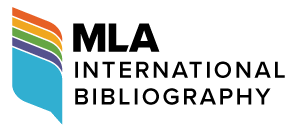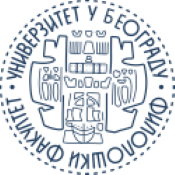Youth Languages in the Institutional Curriculum of Rural Areas of Northern Antioquia, Colombia
DOI:
https://doi.org/10.18485/beoiber.2023.7.1.12Apstrakt
Spanish is a language in permanent evolution according to the thinking, feeling and use of the speaker because it is closely linked to the essence of Being and, in the new generations, conditioned by political, social, cultural, technological and communication contexts worldwide. The sciences of sociolinguistics and psycholinguistics recognize the linguistic variety of the young people of the 21st century. However, it is important to analyze the language of young people in the curriculum of rural schools in Colombia to propose communication strategies consistent with their life project. The research arises from the reflection on the formation of citizens in its communicative dimension. The methodological approach is qualitative with a single case study that applies surveys, conducts interviews and reviews the Institutional Educational Project - PEI to relate the coherence with this research. The results are conclusive in the variety and linguistic use, absence of criteria, the little participation of the students and a PEI in the process of being updated. In the conclusions, the linguistic varieties of different social groups between the ages of 12 and 30 are presented, with the influence of the language of the city. Therefore, educational agents propose linguistic adjustments in the curriculum and transversal projects related to oral and written discourse. Finally, an impact is achieved in the community to continue this research, so that a communicative, critical and participatory citizen is defined, especially in the rural areas of educational institutions in the north of Antioquia, Colombia.Reference
Adolph, Karen, et al. «Using social information to guide action: Infants’ locomotion over slippery slopes.» Neural Networks 23.8-9 (2010): 1033–1042. Web. 3 Feb. 2023.
Austin, Jhon. Cómo hacer cosas con palabras. Buenos Aires: Paidós, 1971. Web. 3 Feb. 2023.
Barón, Leonardo, y Oliver Müller. «La Teoría Lingüística de Noam Chomsky: del Inicio a la Actualidad.» Leng 42.2 (2014): 417–442. Web. 20 Mar. 2022.
Barrett, Lisa Feldman, et al. «Context in emotion perception.» Current Directions in Psychological Science 20 (2011): 286–290. Web. 3 Feb. 2023.
Bonilla, Elsy, y Penélope Rodríguez. Más allá del dilema de los métodos. Bogotá: Vitral, 2000. Impreso.
Castañeda, Luz. «El parlache: resultados de una investigación lexicográfica.» Forma y función 18 (2005): 74–101. Web. 5 Abr. 2022.
Chizzotti, Antonio. «História e atualidade das ciências humanas e sociais.» Cadernos de História da Educação 15.12 (2016): 599–613. Web. 3 Feb. 2023.
De Sousa Santos, Boaventura. «Capítulo II. Una nueva cultura política emancipatoria.» Renovar la teoría crítica y reinventar la emancipación social (encuentros en Buenos Aires). Buenos Aires: CLACSO, 2006. Web. 3 Feb. 2023.
–. Refundación del Estado en América Latina. Perspectivas desde una epistemología del Sur. La Paz: Plural, 2010. Web. 3 Feb. 2023.
Díaz-Barriga, Ángel. «Currículo, escuelas de pensamiento y su expresión en la tensión entre saberes conceptuales y prácticos.» Currículo sem Fronteiras 13.3 (2013): 346–360. Web. 10 May. 2022.
Eiserer, Paul. El psicólogo escolar. Buenos Aires: Editorial Troquel, 1971. Web. 3 Feb 2023.
Elfenbein, Hillary Anger, & Nalini Ambady. «On the universality and cultural specificity of emotion recognition: A meta-analysis.» Psychological Bulletin, 128 (2002): 203–235. Web. 3 Feb 2023.
Erickson, Frederick. «Qualitative Methods in Research on Teaching.» Handbook of research on teaching. Merlin Wittrock (ed.). New York: MacMillan, 1986. 119–161. Print. Web. 3 Feb 2023.
Estrada, Asunción. «Análisis de las actitudes y conocimientos estadísticos elementales en la formación del profesorado.» Tesis doctoral. Universidad Autónoma de Barcelona, 2002. Web. 10 Jun. 2002.
Figueroa Moran, Hugo. «Conceptualización del “Currículum ausente” como herramienta de análisis en el diseño y la gestión curricular.» Revista Redised 1.1. (2019): 55–59. Web. 18 Sept. 2022.
Gallegos, Ramón. «Educación Holista para el siglo XXI.» Una visión integral de la educación. Guadalajara: Fundación Internacional para la Educación Holista, 2001. 1–17. Web. 10 Jun. 2016.
Gaviria, Aníbal. Plan de Desarrollo: Unidos por la vida 2020-2023. Medellín, Colombia: Editorial Artes y Letras S.A.S, Gobernación de Antioquia, 2020. 20-25. Impreso.
Gimeno, Francisco. «Hacia una sociolingüística histórica.» ELUA 1 (1983): 181–226. Web. 20 Abr. 2022.
Harris, Paul. Children and emotion. Oxford UK: Basil Blackwell, 1989. Print.
Harris, Paul, et al. «The mysterious emotional life of Little Red Riding Hood.» Children and emotion. New insights into developmental affective sciences. Contributions to Human Development. K. Hansen Lagattuta (Ed). Basel: Karger, 2014. 106-118. Web. 5 Jul. 2022.
Heath, Shirley Brice. «Linguistics in the study of Language in Education.» Harvard Educational Review 70.1 (2000): 49–59. Web. 25 Feb. 2023.
Labov, William. The social stratification of English in New York City. Washington, (D.C.): Center for Applied Linguistics, 1966. Web. 15 Feb. 2023.
–. Language in the Inner City: Studies in the Black English Vernacular. Philadelphia: University of Pennsylvania, 1972. Web. 16 Feb. 2023.
–. «Estudio del lenguaje en su contexto social.» Lenguaje y sociedad. Cali, Colombia: Centro de traducciones de la Universidad del Valle, 1983. 116–393. Web. 14 Feb. 2023.
Madgenzo, Abraham. Formación Ciudadana. Bogotá: Cooperativa Editorial Magisterio, 2004. Impreso.
MEN: Ministerio de Educación Nacional. «Decreto 1860 de 1994, Ley 115 de 1994, en los aspectos pedagógicos y organizativos generales.» Diario Oficial 41.480 (1994): 7–22. Web. 13 Ene. 2016.
–. Ley general de educación 115. 1994. Web. 16 Feb. 2023.
Menéndez Pidal, Ramón. Estudios de lingüística. Madrid: Espasa-Calpe, 1970. Impreso.
Milroy, Lesley. Language and social networks. Oxford: Blackwell, 1987. Print.
Moreno Fernández, Francisco. Metodología sociolingüística. Madrid: Gredos, 1990. Web. 3 Feb. 2023.
Nussbaum, Martha. Crear capacidades. Editorial Paidós. 2011. Impreso.
Rodríguez, Fernando. «La filosofía del lenguaje de Eugenio Coseriu a la luz de la investigación psicológica sobre formación de conceptos: acerca del lenguaje como sistema de coordenadas conceptuales básicas». Lengua y habla 20 (2016): 75–90. Web. 10 Ago. 2022.
Romaine, Suzanne. El lenguaje en la sociedad. Barcelona: Ariel, 1996. Impreso.
Silva Corvalán, Carmén. Sociolingüística y pragmática del español. Washington, D. C.: Georgetown University Press, 2001. Web. 3 Feb. 2023.
Stake, Robert. Investigación con estudio de casos. Madrid: Ediciones Morata, 1998. Impreso.
Tottenham, Nim, et al. «The NimStim set of facial expressions: judgments from untrained research participants.» Psychiatry Res 168.3 (2009): 242-249. Web. 3 Feb. 2023.
Van Dijk, Teun. La ciencia del texto. Barcelona: Paidós, 1998. Web. 3 Feb. 2023.
##submission.downloads##
Objavljeno
Kako citirati
Broj časopisa
Sekcija
Licenca
Sva prava zadržana (c) 2023 Claudia Cristina Grajales Bolívar

Ovaj rad je pod Creative Commons Autorstvo-Deli pod istim uslovima 4.0 Internacionalna licenca.
Autori koji objavljuju u ovom časopisu pristaju na sledeće uslove:
- Autori zadržavaju autorska prava i pružaju časopisu pravo prvog objavljivanja rada i licenciraju ga pod okriljem Creative Commons Attribution-ShareAlike 4.0 International License koja omogućuje drugima da dele rad uz uslov navođenja autorstva i izvornog objavljivanja u ovom časopisu.
- Autori mogu da izrade zasebne, ugovorne aranžmane za ne-ekskluzivnu distribuciju rada objavljenog u časopisu (npr. postavljanje u institucionalni repozitorij ili objavljivanje u knjizi), uz navođenje da je rad izvorno objavljen u ovom časopisu.
- Autorima je dozvoljeno i podstiču se da postave objavljeni rad on-line (npr. u institucionalnom repozitoriju ili na svojim mrežnim stranicama) pre i tokom postupka prijave, s obzirom na to da takav postupak može voditi produktivnoj razmeni ideja, te ranijoj i većoj citiranosti objavljenog rada (up. The Effect of Open Access).













